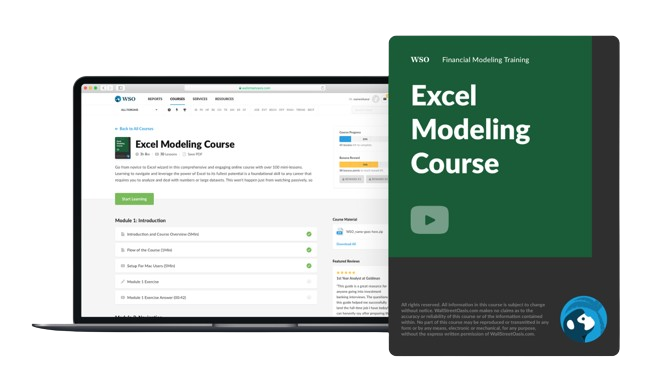Boutique Investment Banks
Boutique is a term used to describe firms that offer at least one type of investment banking service. The size of a boutique investment bank can vary considerably, as can where they operate. Some of the larger elite boutiques have a global presence with headcounts in the thousands, whilst small regional boutiques may have as few as 5 people employed. These firms tend to focus solely on services like mergers and acquisitions (M&A), restructuring, and advisory, although some firms may offer other services such as research and asset management. Boutiques tend to work primarily with small and middle-market companies and deals.

How do boutique investment banks work?
As with every other industry, smaller firms such as boutiques, prosper by specialising in the services they provide and positioning themselves to serve a specific niche. Since they are smaller than their Bulge Bracket (BB) counterparts, and have limited financial resources and headcount, this strategy of specialising in their service offerings and providing clients with tailored services provides them with a competitive advantage as compared to the BB banks. Since they target clients in a relatively smaller sized market, they do not have to compete with larger firms. Generally, boutiques are founded and run by ex BB bankers who want to venture out on their own.
There are four main categories of boutiques:
- Elite boutiques
- Up and coming Elite boutiques
- Industry specific boutiques
- Regional Boutiques
Elite Boutiques
Elite boutiques are large firms that solely offer investment banking products such as mergers and acquisitions and restructuring. Unlike middle market or bulge bracket firms that offer a wide variety of services. These investment banks may rival the bulge brackets for deals, however EB’s do not have capital markets groups, and do not have underwriting capabilities. Some EB’s may offer services such as research, like Evercore’s prestigious ISI division. Elite boutiques have the advantage over bulge brackets of being less regulated. Bulge brackets offer many services across many functions, and conflicts of interest can exist between one division and another, which brings regulatory scrutiny to the firm. Boutique firms are able to navigate what would be a bureaucratic process to some firms, due to their lack of many divisions outside of investment banking.
These firms include:
Up and Coming Elite Boutiques
Up and coming Elite Boutiques are firms founded by ex-BB/EB managing directors who take big clients with them. These firms are not relatively known and have very small teams, however they engage in large deals, rivaling that of Bulge Brackets and Elite Boutiques.
Some up and coming elite boutiques are:
Industry Specific Boutiques
Industry Specific boutiques focus on investment banking services within a specific industry. For example, a healthcare boutique may only deal with healthcare companies, and many of its employees may have experience in that field. Some boutique firms may offer multiple services to multiple industries, however its investment banking division may only be industry specific. Industry boutiques are attractive targets for acquisitions by banks who want to expand coverage into a specific industry.
Some industry specific boutiques are:
- Rosenblatt Securities - FinTech
- Incentrum - Healthcare
- Valence Group - Chemicals (Acquired by Piper Sandler)
- Stephens - Energy
Regional Boutiques
Regional boutiques are investment banks with small headcounts that work on low value deals, typically less than $50 million. They will advise clients in a certain geographic region since they do not have nationwide or global offices that can service clients around the world. Some regional boutiques may specialize in a specific industry with employees with industry backgrounds, while others advise clients in a diverse range of industries.
Regional boutiques include:
Working at a Boutique Investment Bank
Small boutiques will tend to have a smaller headcount, typically in the dozens to the hundreds, with elite boutique headcount ranging in the thousands. Compensation at the elite boutiques rivals that of BB pay and can even exceed total pay at the biggest firms in the world. Evercore, an elite boutique, holds the title for the highest compensation for first year analysts of any firm. Small regional boutique firms will pay considerably less to its employees, due to low deal volume and size. However these bankers may have a trade off with better hours.

Boutique bankers generally tend to have a better work life balance than those at BB’s, with some regional boutique bankers reporting hours as low as 40 to 70 hours a week. Elite boutique analysts tend to work similar hours as bulge bracket bankers, generally working over 80 hours a week. Bankers at up and coming elite boutiques will have the worst work life balance, since they have very small teams advising on multi billion dollar deals typically handled by bulge bracket and elite boutique firms. These analysts may work over 100 hours week on a regular basis. Industry specific boutiques will vary in hours.
Small boutique firms may not be as selective as BB or elite boutique firms in recruiting, and may hire from a wide variety of schools. You may not see as many “target school” students at these regional firms since they may have offers at more “prestigious” firms. Elite boutiques may be even more selective than Bulge Brackets however, with notoriously difficult interviews and smaller amounts of positions available. Recruiting at small boutiques may not be as structured as BB or EB recruiting. Industry specific firms may hire analysts with little to no finance experience but with experience in their specific field.
Boutique IB Exit Opportunities
Elite boutique analysts have similar exit opportunities as BB firms. Megafund Private Equity headhunters will recruit from these firms, and analysts will often exit to corporate development, venture capital, corporate strategy, and other typical IB exit opportunities. Exit opportunities for regional boutique bankers are much more limited. Large PE firms and Hedge funds tend not to recruit from these small firms. Common corporate exit opportunities like corporate development and strategy are within reach, however you are unlikely to be recruited by Apollo or KKR after a stint in a 10 man investment bank. For industry specific groups, exit opportunities into firms within their coverage are common. These bankers may also go into venture capital or boutique/middle market private equity within their industry, as well as corporate finance roles. Analysts at small boutique firms often lateral into a middle market firm for better pay or better exit opportunities in the future.
Interested in a career in Investment Banking?
The WSO investment banking interview course is designed by countless professionals with real world experience, tailored to people aspiring to break into the industry. This guide will help you learn how to answer these questions and many, many more.
Free Resources
To continue learning and advancing your career, check out these additional helpful WSO resources:




or Want to Sign up with your social account?